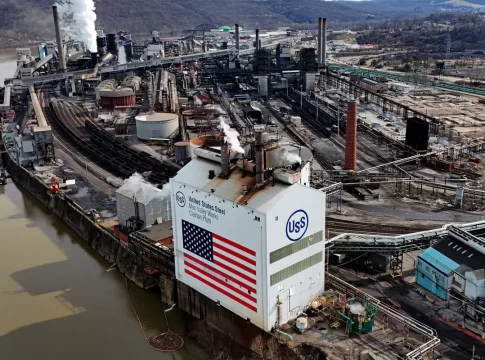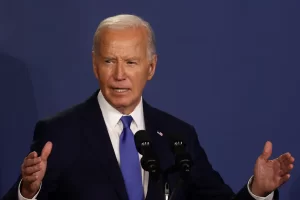President Joe Biden has blocked the acquisition of US Steel by Japan’s Nippon Steel, a decision that underscores the administration’s commitment to maintaining a domestically controlled steel industry amidst persistent economic and geopolitical challenges. This decision, announced in the closing days of Biden’s administration, is being hailed by some as a necessary defense of national security, while others view it as a politically motivated misstep that could deter future foreign investment in U.S. enterprises.
President Biden emphasized the strategic importance of a robust, domestically owned steel industry, considering it essential for national security and the resilience of supply chains. “Steel production—and the steelworkers who produce it—are the backbone of our nation,” he stated, reflecting a long-held view that has been a cornerstone of his economic policy.
Blocking the deal has been politically charged since it was proposed in December 2023. It has sparked significant debate about the future of the American steel industry, a sector historically seen as a symbol of U.S. industrial power but which has been in decline for decades. The decision aligns with the sentiments of the United Steelworkers union, which has firmly opposed the deal, citing concerns over job security and the preservation of unionized labor in older mills.
In response, David Burritt, President and CEO of US Steel, criticized the decision as a political maneuver rather than a strategic economic decision. Burritt argued that the blocked investment could jeopardize the company’s future and American competitiveness, asserting that the move was a “political payback” that disregarded economic realities and potential benefits from the Japanese investment.
US Steel and Nippon Steel have announced intentions to challenge the decision in court, arguing that the presidential order lacks credible evidence of national security concerns. They assert that the deal was crucial for injecting much-needed investment into US Steel’s domestic operations—funds that could have revitalized aging facilities and safeguarded thousands of union jobs.
Experts warn that Biden’s decision could have broader repercussions for foreign investment in the United States. Jason Furman, former Chair of the Council of Economic Advisers, labeled the move as “pathetic and craven,” suggesting that it was a capitulation to special interests that could ultimately make America less secure and prosperous.
The decision could mark a pivotal moment for the Committee on Foreign Investment in the United States (CFIUS), which had left the final call to the president after failing to reach a consensus on the national security implications of the deal. Insiders have expressed concerns that this sets a precedent for political influence over what is traditionally an objective assessment process.
Historically, US Steel has played a critical role in American industrial might, peaking during the mid-20th century with significant contributions to wartime efforts and domestic infrastructure. However, it has since struggled to keep pace with more agile competitors, both domestically and internationally. Today, US Steel employs 14,000 workers in the U.S., far fewer than its historical peak, and operates amidst a backdrop of industry transformation driven by technological advancements and changing global dynamics.
Analysts like Charles Bradford point out that the company’s decline has been long and sustained, with its current operational model lagging behind more efficient competitors such as Nucor, which utilizes modern mini-mill technology. The blocked acquisition by Nippon Steel, which had vowed to maintain and invest in US operations, was seen by some as a potential lifeline for the beleaguered company.
As Biden’s decision reverberates through the steel industry and broader economic landscape, stakeholders are left to ponder the future viability of US Steel and similar legacy manufacturers. The challenge of balancing national security with economic growth and foreign investment will continue to be a central theme in American industrial policy as the nation navigates its role in an interconnected global marketplace.



